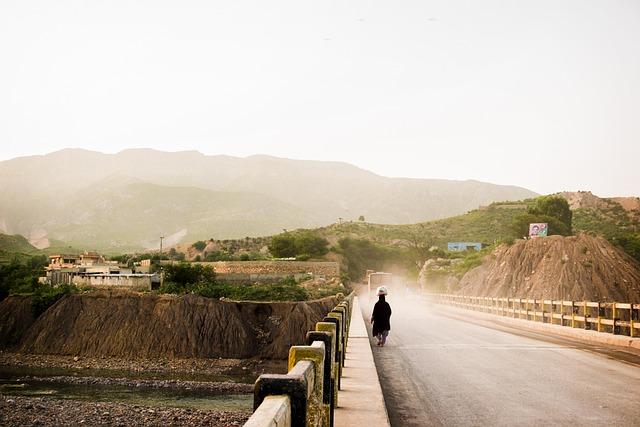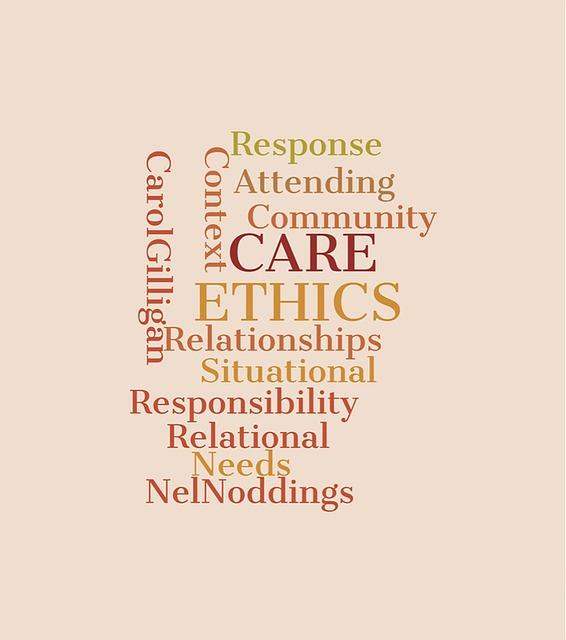In an age where information flows ceaselessly and the lines between fact and fiction blur, the role of journalism has never been more critical—especially in a nation as vibrant and complex as Pakistan. The media landscape here is a dynamic tapestry woven with threads of tradition, innovation, and enduring challenge. From the bustling streets of Karachi to the political heart of Islamabad, the quest for truth is both a noble pursuit and a perilous journey. As journalists grapple with issues of credibility, censorship, and public trust, the question emerges: how do they navigate this multifaceted terrain? In “Navigating Truth and Trust: Journalism in Pakistan’s Media Landscape,” we explore the intricate dance between responsibility and freedom, examining the forces that shape reporting and the vital importance of fostering trust in an era of misinformation. Join us as we delve into the struggles and triumphs of a profession tasked with illuminating the shadows of society while remaining steadfast in its pursuit of the truth.
Understanding the Impact of Misinformation in Pakistans Media
The proliferation of misinformation within Pakistan’s media landscape poses significant challenges not only to journalism but also to public perception and trust. This phenomenon is fueled by several factors, including the rapid spread of information on social media platforms and the increasing competition among news outlets for viewership. As the line between credible and non-credible sources blurs, it becomes crucial for individuals to develop critical media literacy skills. Understanding the nuances of fact-checking, distinguishing between opinion and reporting, and recognizing bias can empower audiences to navigate a saturated information environment effectively.
To further illustrate the consequences of misinformation, consider the following aspects:
Consequences of Misinformation:
| Impact Area | Description |
| Public Trust | Misinformation erodes trust in legitimate media outlets, leading to skepticism about truthful reporting. |
| Political Stability | False narratives can influence public opinion and incite political unrest. |
| Social Cohesion | Spreading misinformation often pits communities against one another, damaging social fabric. |
| Health Risks | During crises like the COVID-19 pandemic, misinformation about health measures can have dire consequences. |
By analyzing these impacts, it becomes evident that addressing misinformation is not solely a media issue but a societal one, requiring collaboration between journalists, educators, and the public to foster a more informed citizenry. By prioritizing transparency and accuracy, media stakeholders can begin to reclaim the narrative and restore faith in journalism, contributing to a healthier democratic discourse.

Building Resilience: Strengthening Journalistic Ethics and Standards
The current media landscape in Pakistan is a mosaic of diverse narratives, each vying for attention in an ever-competitive environment. Amidst the rush to deliver breaking news, the core tenets of journalism—accuracy, fairness, and accountability—must remain steadfast. Media practitioners are called to uphold ethics that not only safeguard the truth but also foster public trust. This can be achieved through rigorous fact-checking processes and transparent sourcing methodologies, which allow audiences to discern between sensationalism and substantiated reporting. Educational initiatives and training programs focusing on the ethical dimensions of journalism will help cultivate a new generation of reporters who prioritize integrity over expediency.
Furthermore, building a resilient media framework necessitates a collaborative approach across various stakeholders. This includes the formation of professional bodies dedicated to enforcing ethical standards and fostering ongoing dialogue about the responsibilities of journalists in society. Establishing a code of ethics that addresses contemporary challenges—such as the pervasive influence of social media and misinformation—can also serve as a vital resource. The impact of these measures can be illustrated in the following table:
| Ethical Principles | Implementation Strategies |
|---|---|
| Accuracy | Regular fact-checking and editorial oversight |
| Fairness | Diversity of voices in reporting |
| Accountability | Publicly accessible complaints processes |
| Transparency | Disclosure of sources and methodologies |

Fostering Public Trust through Transparency and Accountability
In an age where information spreads at lightning speed, the media’s role in maintaining transparency and accountability has never been more crucial. When journalists uphold strict ethical standards, they not only provide credible news but also enable the public to scrutinize the actions of those in power. By ensuring that news coverage is based on verified facts and clear sources, audiences can develop a sense of confidence in the media. This trust is nurtured through:
- Objectivity in reporting
- Consistency in ethical practices
- Engagement with the audience to clarify doubts
Moreover, transparency in processes and decision-making can foster a stronger connection between media organizations and the public, paving the way for a more informed citizenry.
Accountability becomes a natural consequence of transparency. When media outlets openly disclose their sources, methodologies, and the potential biases they may hold, it invites constructive criticism and encourages a culture of responsibility. This is vital in Pakistan’s context, where various factors can cloud the reliability of information. To further this initiative, media organizations can adopt practices such as:
- Regular audits of news practices
- Creating feedback loops with audiences
- Providing corrective measures for mistakes
By integrating these accountability measures, journalism can reclaim its integral role in society, ensuring that citizens not only receive information but can also trust and verify the truth behind it.

Empowering Journalists: Tools and Strategies for Ethical Reporting
In the ever-evolving media landscape of Pakistan, journalists require a robust toolkit to navigate the complexities of ethical reporting. The digital age presents both opportunities and challenges; therefore, understanding the implications of technology on journalism is vital. Some essential strategies include:
- Verification Tools: Utilize platforms like FactCheck and Snopes to ensure the integrity of the information being reported.
- Source Transparency: Always disclose your sources, providing readers with insight into the reliability of the information.
- Audience Engagement: Foster an interactive relationship with the audience through social media, allowing for open dialogue and feedback.
- Training and Workshops: Regularly participate in ethical journalism workshops to stay informed about best practices and legal guidelines.
Moreover, cultivating an environment of trust is crucial for journalists, especially in regions where media freedom is often challenged. Strategic collaborations with NGOs and media watchdogs can enhance the credibility of reports and foster a culture of accountability. Key elements to promote a trustworthy reporting environment include:
| Element | Description |
|---|---|
| Community Engagement | Connect with local communities to gather firsthand accounts and improve narrative authenticity. |
| Fact-Checking Culture | Encourage a newsroom culture that prioritizes fact-checking before publication. |
| Ethical Guidelines | Adhere to established ethical guidelines to safeguard against bias and misinformation. |
Wrapping Up
As we close our exploration of the intricate relationship between truth and trust within Pakistan’s dynamic media landscape, it becomes evident that the journey of journalism here is both challenging and vital. In this tapestry woven with fabric from diverse perspectives, the responsibilities of media practitioners continue to grow as they navigate a landscape marred by political intrigue, societal tensions, and the quest for transparency.
In a world where information is abundant yet reliability often elusive, the role of journalism transcends mere reporting; it becomes a beacon of accountability and a custodian of democracy. As audiences become more discerning and engaged, the media’s evolution reflects the collective voice of a society yearning for clarity amidst chaos.
The path ahead may be fraught with hurdles, but it is also rich with potential for growth and reform. By fostering an environment that values ethical reporting, critical dialogue, and public trust, the media in Pakistan can emerge not only as informers but as influential agents in shaping a more informed and cohesive society.
In navigating the confluence of truth and trust, may the journalists of Pakistan continue to act as defenders of integrity, ensuring that the stories they tell resonate with authenticity and serve the public good. The future of journalism in Pakistan hangs in the balance — a balance that will be defined not just by what is reported, but by the values that guide each narrative.



